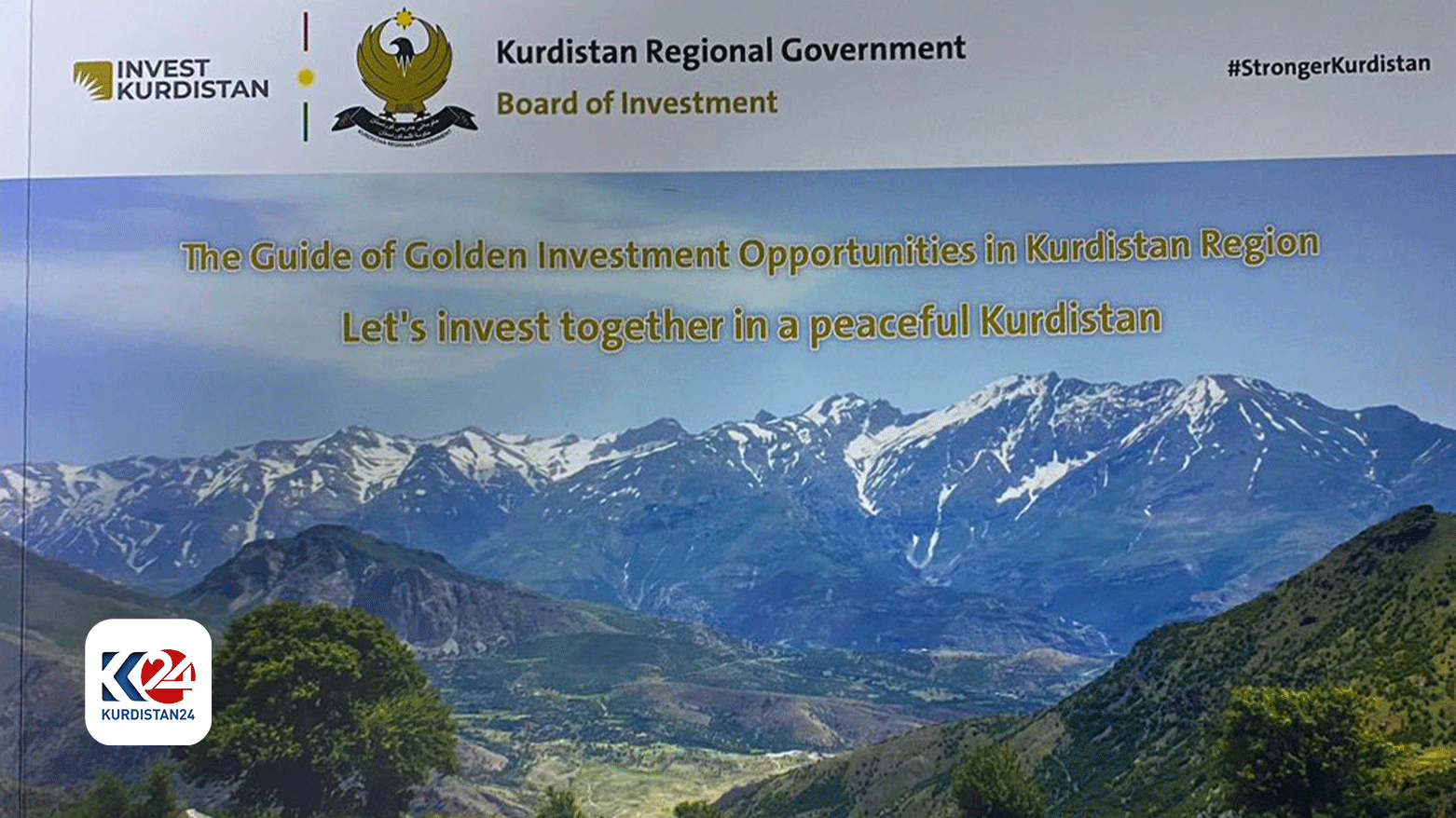KRG publishes ‘Guide of Golden Investment Opportunities’

ERBIL (Kurdistan24) – The Kurdistan Regional Government (KRG) Board of Investment on Tuesday published its “Guide of Golden Investment Opportunities in Kurdistan Region,” which identifies various sectors open for entrepreneurship for foreign and domestic investors.
In the introduction to the 57-page guide, Kurdistan Region Prime Minister Masrour Barzani discusses the efforts of the Ninth Cabinet of the KRG to create investment opportunities.
“We have tried from the very beginning to remove all legal and bureaucratic obstacles of the investment process, and a lot of fixes have been done,” Barzani said while claiming more than “a thousand investment opportunities” are available in the Kurdish region.
The prime minister further noted that the Cabinet has adopted a policy of “diversifying the economy, so we will do our best to support investment in various fields.”
Traditionally, the Kurdistan Region has strongly relied on oil and gas exports through Turkey’s Ceyhan Port to sustain its economy, yet these exports were stopped by Baghdad in March 2023, alleging they are illegal.
Thus, economic diversification is the most profound theme in the guide, with a strong focus on agriculture, tourism and real estate construction to offset petrodollar losses.
The guide then summarizes the incentives and laws for potential suitors, promising exemptions on “all taxes and non-customs fees” for 10 years, including any equipment for their project imported into the Region.
The guide further adds that "golden investment opportunities” in the Kurdistan Region are divided into four provinces and four independent administrations.
In Erbil Province, for example, several projects have been identified as promising ventures, including the construction of an industrial zone in Ararat, a “medical city” in Khabat, and the heavy industries zone in Khurmala.
In Halabja Province, establishing a food industries zone and mineral water production plant project has been cited as another such lucrative opportunity. In Soran, the establishment of an industrial zone and a dairy factory is heavily advertised.
Editing by Dastan Muwaffaq
